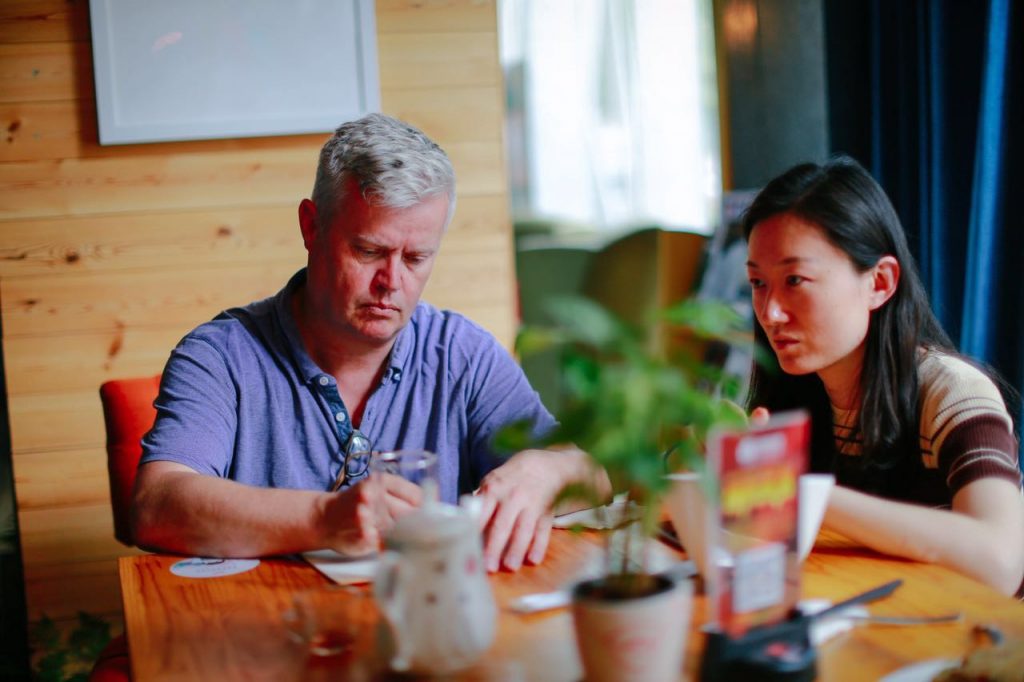My Advice for StartUps Looking to do Business in China
I run a consultancy where I advise organisations on commissioning artists – often within new build projects but also exhibitions and cultural strategy across the UK and China.
Businesses are often curious about how to work with artists. My role is to develop creative briefs and broker relationships that put the right people together. My original plan was to take UK artists to China to exhibit and take commissions and whilst I have done that to some extent, much of my work has been as a consultant and curator for exhibitions by Chinese artists. This is a good example of how you can be busily working away in China. But actually the things you are prioritising versus the things they might value could be very different!

Matthew Jarratt
I thought I was going to be ‘exporting’ UK artists but in transpired that my Chinese clients were looking for me to add an international perspective to their projects. When it comes to working in China, my five top tips would be:
RELATIONSHIPS MATTER
When I began working in China in 2013 someone told me to go and visit, come back and tear up the business plan, go again to meet the same people, then go again and only then, would projects start. That’s is exactly how it worked out for me. So, the advice is to focus first on building relationships. I have learnt that when working in China there is a lot more emphasis on relationships within a team, bonds are forged through food and social gatherings. I’ve never started a project in China without several dinners beforehand. Business isn’t discussed at all, it’s just people getting to know each other. By contrast I have done projects in the UK where you meet once and get straight into budgets, timescales and delivery – not even a cup of tea!! In this respect I think we all have a good lesson to learn!
WECHAT rather than EMAIL
I had some support from UK Trade and Investment for my first few trips to China, and their advice was “make sure you have your business card printed in Chinese,” which I did, however I found that WeChat has overtaken the formal business card culture. WeChat is a Chinese social media platform which seeks to combine Facebook/Twitter/Instagram, users can quickly scan each others phones to become connected.

I also find that there isn’t much of a culture of using email- for many of the people I work with I have to send them a WeChat message to ask them to check the email I have sent them! It’s also worth knowing that your website might not work in China (due to the Great FireWall!). If your website is hosted on a server that might also host sites which are banned in China, then the whole server may be blocked. My advice is to take all your information/presentations on a laptop/memory stick rather than relying on the web.
BEIJING or SHANGHAI
There are over 170 cities in China with more than 1 million residents- and many of the ‘second tier’ cities have over 5 million inhabitants, which is pretty sobering as I am based in Newcastle/Gateshead where around 400,000 people live! Working in the cultural sector, I have found that Beijing is the most useful base for me in terms of the Art World but Shanghai is also a very creative place and possibly more ‘outward’ looking. I have visited and worked in many other Chinese cities which often seem to use Beijing or Shanghai as a template for their development. Internal flights are cheap and the fantastic high-speed bullet trains will soon link all the main cities. So I always make sure I schedule days to catch up with colleagues in Beijing even if I am mainly working in one of the inland ‘second tier’ cities.
ETIQUETTE
When meeting new people – especially in the inland, second tier cities there are a few useful things to remember. There is quite a strong hierarchy within companies and local government. If you want to meet the head of the Chinese company, it is important that you are the ‘Director’ or ‘President’ of your organisation (even if you are self employed!). It’s a big thing to welcome overseas guests in China and luckily I find the food culture really fantastic but if your hosts are out to impress then its best to be prepare for many, many courses and lots of formal toasts and ‘ganbei’ (meaning ‘down in one’ or ‘empty your glass’).
LOCAL EXPERTISE
I have been very fortunate to work in partnership with a Beijing based colleague. Together we have developed some exciting projects in China and in the UK. Having the support from someone who can speak the language and most importantly give advice on the project and its challenges from a local perspective is vital. This is much more than language interpretation or translation
, it’s about knowing and navigating the culture, being aware of business-to-business etiquette and the ability to make introductions to key people. Having a local partner has been essential to my work in China.
Matthew Jarratt is a consultant and curator, brokering partnerships between artists and businesses.

